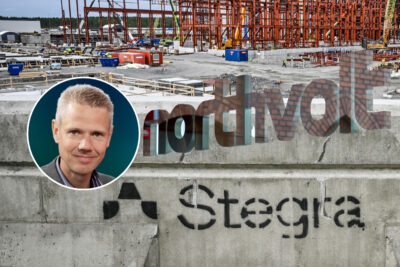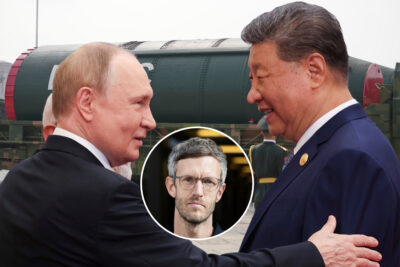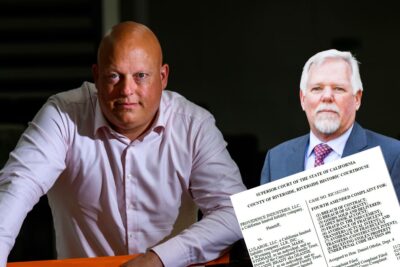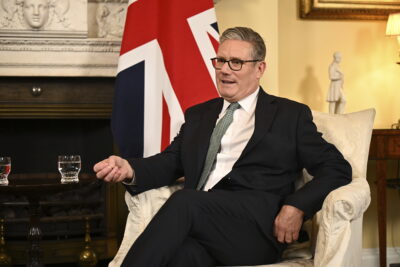Hayman Capital’s Kyle Bass targets U.S. pharma
In
Michael Lewis’s book ”Boomerang” from 2011 you said your largest positions were
negative positions in France and Japan. About four years later – is that still
the case?
– Japan is still the largest position. France is not.
What has
changed in France?
– Draghi’s ”whatever it takes”-speech in 2012 delayed problems with the
Eurozone for a long time. And now I think within a week or so, you’ll see the
Eurozone enter some sort of QE-program where they outright buy sovereign bonds.
I still believe the Eurozone experiment is destined to fail at some point in
time. It’s just that it may take a long time from now.
You’ve
been predicting a bond crisis in Japan for some time. Does that case still hold
up?
– What I think many have missed about the predictions is that I’ve said that there
are two valves: one is interest rates, one is currency. We’ve put about 75 per
cent of our money towards currency and 25 per cent towards rates, so on a net
basis we’ve done really well in Japan over the last three years.
At the
Texas Investor Summit in February you predicted the yen, then at around 102,
would go above 115 against the dollar during 2014. It ended the year at 119.
Where do you see the yen going during 2015?
– I think it will go north of 140. And you could see a disorderly move in the yen
this year.
But
yields in Japan have been falling to record lows. Why is that?
– The Japanese preliminary budget has Japan running a fiscal deficit of about
37 trillion yen which, if that holds, would be one of their smallest deficits
in years. But their central bank is still going to print 80 trillion yen. That
means that they’re going to buy every bond that they issue, monetizing all of
that, and then they’re going to buy about 40 trillion yen more of bonds, stocks
and Japanese REITs. Since they buy more than they issue, they are basically
taking JGB supply out of the market. That’s why you have the 5 year rate at one
basis point and the 10 year rate at around 30 points.
Could the
weaker yen spill over to the bond market?
– It hasn’t yet. The Bank of Japan is buying every bond out there, as someone
like Paul Krugman would suggest. But if you follow that hypothesis and you’re
rational about it, then one would think you would never need to have a balanced
budget. You could spend as much as you wanted to spend and your central bank
could buy every bond that the treasury issues. Well, that’s a world of fantasy.
Why would anyone ever worry about a fiscal deficit ever again if that were to
be true? At some point in time the pressure cooker breaks. Right now the
currency has been the valve that has moved, so I think the currency keeps
moving. But if you get a disorderly movement in the currency you could see a
move in rates, you could see a panic. But maybe they don’t get that. Maybe the
currency just goes from 120 to 300 or 400. Who knows where it goes.
You made
money being early in buying Greek credit default swaps a few years ago. Now
Greece is on the agenda once again with the upcoming elections. How do you see
the events unfold?
– It’s so much harder to call now, but I
think the most likely outcome is that the radicals win the election and that
they become a little less radical once they win. You can run on a political platform
until reality hits you. They would realize what would happen if Greece were to
be pushed out. The country would go broke overnight. The official sector debt,
from the IMF, the EU and the ECB, is still around 150-160 per cent of GDP. It
needs to be written down. The lenders knew that wouldn’t be repaid. They were
just buying time for the Euro zone, and probably rightly so. But in the end
those loans are going to be written down, the question is just when and how.
How do Germany, the EU and the EMU think about that? Germany has been posturing
to try to keep contagion from spreading if there is a write-down.
At the Texas
Investor Summit you were bullish on Argentina. Are you still?
– Yes, very. Argentina only has 33
per cent debt to GDP and only 15 per cent of that is externally held. They
spend about 1 per cent of GDP on interest and have both a willingness and
capacity to pay. Argentina is also a very resource rich country; it’s just a
country with a management team that is not so good. They will hold the
presidential election in October, so you’ll have a new regime, and I also think
they’ll have to settle the case with the vulture funds sometime in the next few
months.
You also
mentioned hydrocarbons.
– Argentina’s problem, if you look at their balance of payments, is energy
imports. Energy prices coming down are therefore very good for Argentina. They
have also found one of the largest shale deposits in the world in the Vaca
Muerta region. If you get a new regime in place that respects the rule of law a
little more, and is more pro-business, they’ll have foreign direct investment
flying in to the Vaca Muerta region over the next ten years. Imagine a world,
in which they have settled the case with the holdouts, they have foreign direct
investment coming in to a resource rich country – where do you think their bond
yields go? Today they’re at 12 per cent. I can imagine them at 5-7 per cent in
the world I just described. If they go to 7 per cent, that’s more than 40 per
cent returns on the bonds. It is one of our biggest positions.
But I
suppose there’s a political risk if they elect a leftist president that’s not
so pro-business?
– Further left than Cristina Kirchner? We have a saying in our office: you
can’t break your arm jumping out of the basement. There are three candidates
and they are all much closer to the center than Kirchner.
Do you
have any equity positions in Argentina?
– We own the national energy company, YPF. It serves us two purposes. One, it
serves a proxy for the Argentinean equity market. Two, it controls the Vaca
Muerta region. So the foreign direct investment will be joint ventures between
YPF and foreign oil companies.
Any other
equities you are long?
– Our portfolio is still very long. We hold positions in mortgage servicing
companies in the U.S. for example. Our biggest position in the equity book is
General Motors.
What do
you like about GM?
– First they have restructured the company. It’s a much leaner, meaner version
of its prior self. It trades at around 2,3 times its enterprise value to EBITDA. Where else can you buy a company with a 3,5 per
cent dividend yield at 2-2,5 times EBITDA? It’s the cheapest company in the
large industrial complex.
But why
are investors so skeptical – because of the recalls last year?
– Last year they had the recalls, which was a complete disaster. The issue has
been mired in controversy, but once it gets put in the rearview mirror value
investors will start to show up. The Department of Justice hasn’t fined them
yet. Whether that fine is 1, 2 billion or 3 billion, doesn’t matter since GM
has 30 billion in unrestricted cash. The fine is not relevant. What is relevant
is that the fine gets announced and put behind them. I think that will be a
catalyst going forward. I also expect GM to raise their dividend in the next
few days. That’s another potential catalyst.
What’s
the stock worth in your opinion?
– At least 45 dollars.
You
changed the subject of your speech from Argentina and Japan to U.S. pharma.
What’s the case in U.S. pharma?
– The pharma companies have been able to raise prices on drugs because of a law
passed in 2003 in the U.S. that disabled Medicare’s ability to negotiate price.
So the largest drug buyer in the world is not allowed to negotiate drug prices
with the drug companies. Whatever the drug companies say, Medicare pays. That
is difficult to believe, and I think it’s all going to change over the next
couple of years.
Why will
it change?
– Congress passed a law that went into effect in late 2012 that has been phased
in during 2013, called American Invents Act. That law provides an
administrative hearing in the U.S. patent office that allows intellectual
property to be challenged. And that will be more and more common in the coming
two years. That will bring to light the abuses that the U.S. pharma industry
has been engaged in, in maintaining monopolistic pricing power.
You’ve
been bearish on European banks, saying they need more capital. Recently
Santander announced that they need 7,5 billion euros in fresh capital. Do you
see more of that coming?
– I do. I realize there is a double counting in assets. They don’t net the
derivatives on their books, so it’s hard to compare U.S. bank assets with
European bank assets. But the European banks still need a lot more equity. And
if Russia continues to go south there is the handful of European banks that
have lent a lot to Russian companies. I wouldn’t own European banks until they
get recapped.
What
about Russian banks?
– Sberbank is probably the best bank in the world. It trades at maybe 60 per
cent of book value, has 600 basis points net interest margin and the Russian
central bank owns half of it. I don’t know where else you would put your money
if you’re in Russia. That’s where I would put it. It’s the greatest bank in the
world – we love it. But we don’t own it because we are too afraid of what might
happen next. Who knows what Putin’s next move is going to be? The situation is
too tenuous and I don’t think Putin is completely rational. He is clearly an
empire builder, but he is very calculating. I’m just not willing to take that
risk.
After the
oil price crash – are you snapping up any bargains?
– I think there are bargains in credit, but I don’t think there are bargains in
equity yet. This is based upon my view of where the price goes. If global GDP
grows at 3-3,5 per cent a year, that’s incremental oil demand of about 1,1
million barrels a day and we’re about 800 000 barrels a day in surplus today.
In 2-2,5 years it gets closer to some semblance of balance. And balance doesn’t
mean 100 dollars, it means a little bit higher from here. We will see some
restructurings in the higher levered companies, which will be cleansing.
Do you
have a role model or an investor you look up to?
– As I was studying this business a decade ago I read every book that George
Soros had written. Since then I’ve become friends with him. He’s one of the
best that’s ever lived, doing what we do.
Note: Affärsvärlden, published since 1901, is Sweden’s leading business weekly.
Kommentera artikeln
I samarbete med Ifrågasätt Media Sverige AB (”Ifrågasätt”) erbjuder Afv möjlighet för läsare att kommentera artiklar. Det är alltså Ifrågasätt som driver och ansvarar för kommentarsfunktionen. Afv granskar inte kommentarerna i förväg och kommentarerna omfattas inte av Affärsvärldens utgivaransvar. Ifrågasätts användarvillkor gäller.
Grundreglerna är:
- Håll dig till ämnet
- Håll en respektfull god ton
Såväl Ifrågasätt som Afv har rätt att radera kommentarer som inte uppfyller villkoren.









